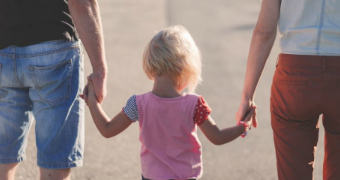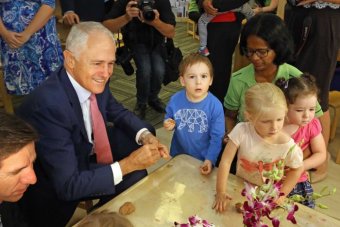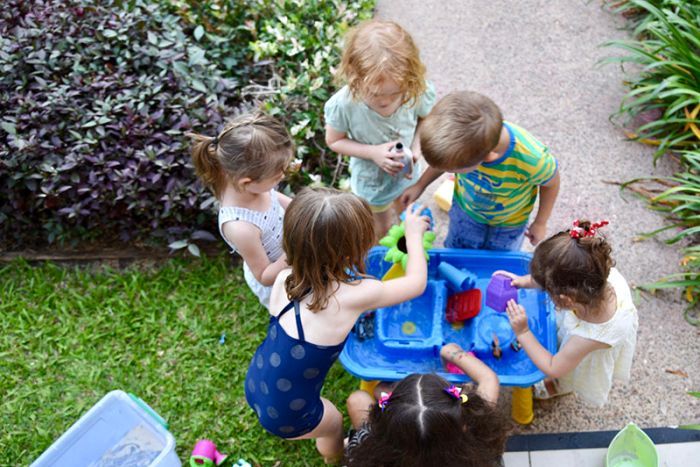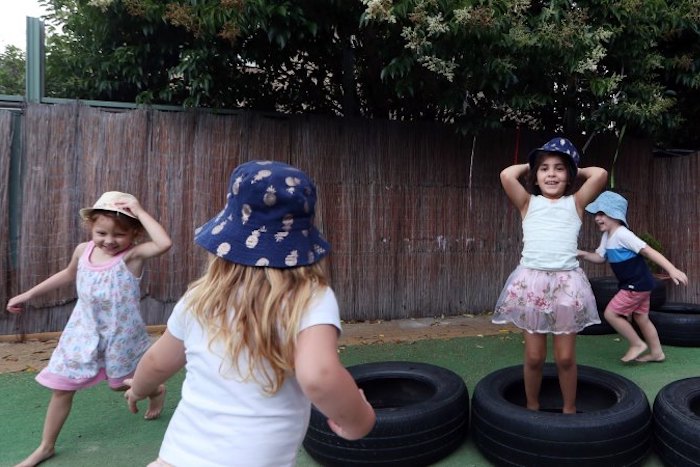Early childhood educators and teachers, the people who run our childcare centres will walk off the job today, again, in their pursuit of living wages.
And once again they won’t get them.
It’s the third time educators have closed their centres. A long running court case by educator union United Voice, arguing their work was undervalued due to gender inequity (97 per cent of them women), was rejected in February. In 2013, a $300 million Labor Government plan to fund pay increases also failed — overturned by the incoming Abbott government and “redirected” to professional development.
Will early childhood educators ever get the wage increases they so need and deserve?
Dirty, noisy and stressful
The facts are well known. Educators earn as little as $21 an hour — the average Australian wage is around $42. But knowledge of facts rarely changes anything.
The Independent Education Union, which is also running an equal remuneration case, describes the work of early childhood teachers as being done in an environment that is “stressful and intense, noisy, requires dealing with human waste, confined, physically and emotionally demanding, professionally isolating, and likely to lead to higher levels of illness”.

We also now know how important the work is.
President Barack Obama once said:
“If we make high-quality early education available to every child, not only will we give our kids a safe place to learn and grow while their parents go to work; we’ll give them the start that they need to succeed in school and earn higher wages and form more stable families of their own.”
Knowing these facts — that the work is hard, and important — how could we not give them a pay increase? How could we pay those working in such conditions, doing such important work, less than we pay most shop assistants?
The issue, of course, is not because we don’t know or think they need a pay rise, but because we can’t decide who should pay for it.
Should parents pay? They know their own wages are earned on the backs of these underpaid educators. But pay more? Ha! Childcare fees are already huge.
Should governments pay? Simon Birmingham, the Minister for Education, is not interested — he expects early education and care centres to pay their employees “as much as they can afford”.
Should centres pay? The rapidly dropping share price of the biggest corporate provider G8 Education, on the back of falling profits, shows child care really isn’t as profitable as thought.
Yes, an obscene amount is made by landlords and property developers and foreign private equity firms that see the billions poured in to the sector by the government as easy money, but this money is siphoned off before centres pay their employees.
All about education
So are the workers just stuffed — reduced to walkouts that raise awareness of their situation, but unlikely to cause change?
Social commentator and former advertising guru Jane Caro says that knowing facts doesn’t change human behaviour. She says the only two things that ever do are hope and fear.
Could hope and fear get parents to push that much, to make this a key issue in the next election? Could fear of not being elected get the Government, the only one who can actually afford to fund the wage increases needed, to act?

What could make parents fear? The fear of who will stay as a low-paid educator? The average time anyone lasts in the job is 7.4 years. Educators only stay at the one centre for 3.6 years. Twenty per cent of our long day care staff are under 25. Forty per cent of educators in long day care only have a Certificate III qualification.
Despite these facts, our educators are amazing. They work hard, doing thankless jobs for low pay. But with a turnover rate of about 30 per cent, they’re not staying — and who can blame them? Leaving your children with others is always daunting and stressful — but leaving them somewhere where they might have a different educator every other week? This is fear-inducing stuff.
What about hope?
Despite the Federal Government’s insistence on making an arbitrary distinction between childcare and early education, what happens at our early education and care centres is always about education — and properly funded early education supports children, families and our communities.
Early education is good stuff. This is the stuff of hope.
Somewhere between parental fears about their children’s safety and their hopes to give them the best start in life must come the impetus to push the Federal Government to properly fund educators’ wages.
Because educators also know about hopes and fears. They fear their pay cheque won’t last until the next one, and live in hope that one day parents will help force governments to do something about it.
First published on ABC News, March 26th 2018.
Lisa Bryant is a consultant for the early education and care sector.



